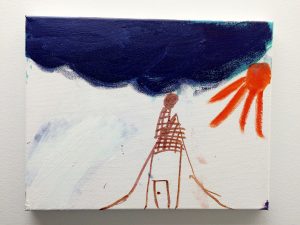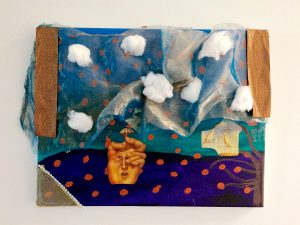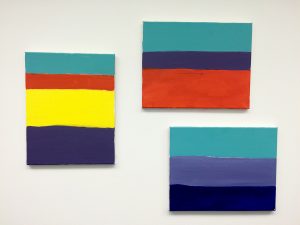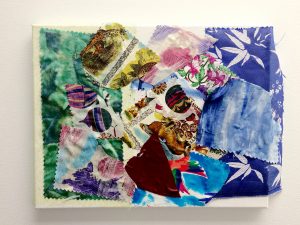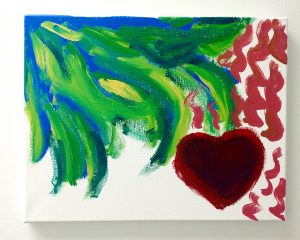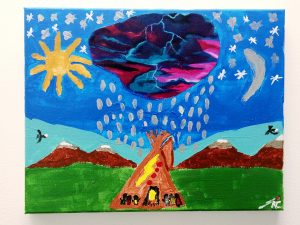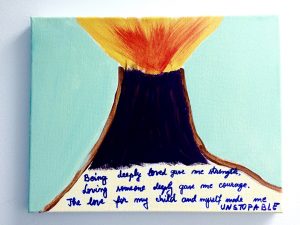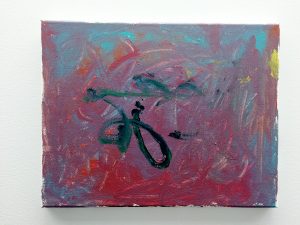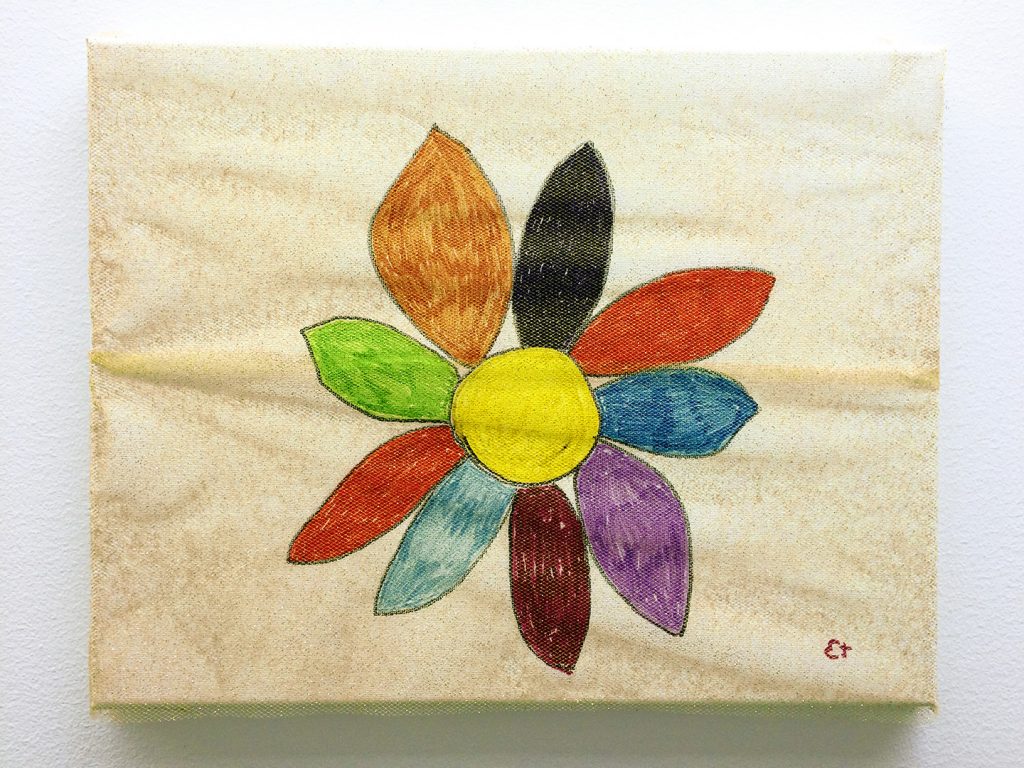
Gold mesh wraps around her painting like the safety net that helped her survive.
A single flower blooms with multicolor petals below the sparking gold, representing other survivors of domestic violence. The flower’s center is Project DVORA , which offers advocacy and outreach services for survivors.
“DVORA saved my life,” the artist said.
She was one of about 10 who participated in a JFS art group specifically for people who have experienced or are experiencing domestic violence.
Isolation is a key element in abusive relationships, according to Brook Avidon, a Project DVORA Advocate. Isolating a partner is a form of control that limits or ends contact with friends and family, who could help a person recognize (and possibly leave) an abusive relationship. “Being with other survivors begins to break the isolation,” Avidon said about the art group. Avidon has been leading creativity and healing workshops for nearly two decades.
While creating art alone could reinforce feelings of isolation, Avidon noted, creating art in a community helps reduce isolation as people build new relationships. Connection, community and a safety net of support can help people overcome the abuse they’ve endured (or are still enduring).
Art can be an important part of both the emotional and physical recovery from domestic violence. According to Avidon, creating art helps build new neutral pathways in the brain that help someone heal from trauma.
Art also provides a way to express emotions and share experiences without having to discuss details of the trauma itself.
“Art is multidimensional,” said Jen Mohr, a fellow DVORA Advocate. “You don’t have to speak linearly. You can communicate in colors and shapes and feelings.” People can share loneliness, freedom, fear or empowerment in their own ways.
Although art can be used to convey difficult experiences, survivors can also use it to express more positive aspects of life, like their blossoming community and the security of their golden safety net.
Below is art created by Project DVORA clients. Some clients chose to provide titles and meanings of their work. Learn more about Project DVORA’s upcoming self-care group by contacting (206) 861-3159.
- “The Lonely House”
- Untitled
- “Stages of Change” 1st – Realization and acceptance. 2nd – Pain and fear (the one with 3 layers of colors, one orange). 3rd – Faith and belief (the one with 4 layers of colors).
- “The Collage”
- Untitled
- “Spirit of the Healing Lodge” As we call upon our Elders and community to surround us with wisdom, medicine ways, and prayers, our heart, mind, Spirit and body heal to walk more whole than we were before…
- Untitled. It takes time for the lava to break free from the volcano. But what an amazing sight when it does!
- Untitled
Rachel is a trail-running dog owner and the Marketing and Communication Coordinator for JFS. She has previously worked as a multimedia journalist for newspapers throughout the Midwest and Western Washington.

